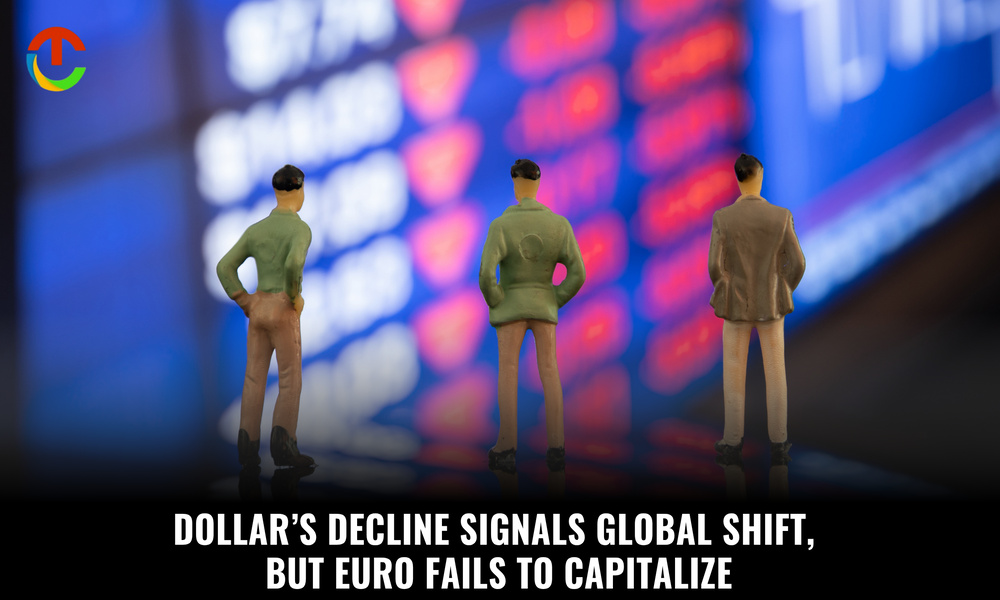The dollar is steadily ceding ground in global trade and reserves, marking a pivotal moment in the financial landscape. However, its decline hasn’t translated into gains for the euro, which continues to lag as a viable alternative on the world stage.
Despite a gradual reduction in the dollar’s dominance, no single currency has emerged as a definitive successor. The U.S. dollar’s share of global foreign exchange reserves has dropped below 60%, its lowest point in nearly three decades, reflecting an evolving multipolar currency world.
Euro’s Inertia Undermines Global Leadership
While many assumed the euro would rise in the vacuum left by the dollar, that expectation has largely fallen flat. The euro’s share in global reserves has stagnated, showing little momentum in challenging the greenback’s supremacy.
Analysts attribute this to Europe’s fragmented fiscal policy, reliance on energy imports, and geopolitical hesitation. Moreover, structural issues within the Euro Fails such as divergent economies and political uncertainties—have prevented the euro from becoming the go-to reserve currency.
China’s Yuan Gains Ground Slowly
At the same time, China’s yuan has made modest gains, supported by Beijing’s efforts to internationalize the currency. Bilateral trade agreements in Asia, Africa, and South America increasingly favor local currencies over the dollar. Still, the yuan’s capital controls and transparency concerns limit its wider adoption.
The trend signals a move toward diversification, not replacement. Central banks globally are spreading their reserves across more currencies to reduce dependence on the dollar without fully embracing any one alternative.
Geopolitics Drive Currency Realignment
Recent geopolitical tensions, especially U.S.-led sanctions and conflicts, have made countries wary of overreliance on the dollar. As nations seek to shield themselves from Western financial levers, alternatives—even if imperfect—become more attractive.
However, none offer the liquidity, trust, or market depth of the U.S. dollar. The Euro Fails lacks unity, the yuan lacks openness, and cryptocurrencies lack regulation. As such, the dollar remains dominant by default, rather than by design.
The Future of Currency Power
Economists argue the world is entering a “multi-currency era” where several players share influence rather than one dominating. While the dollar is losing its absolute grip, no clear frontrunner is ready to take its place.
The euro’s missed opportunity reflects deeper systemic issues that must be addressed if it’s to play a bigger role. For now, the dollar’s decline is evident but its dethroning is far from certain.
Read Exclusive Interview of Grant Ostir




